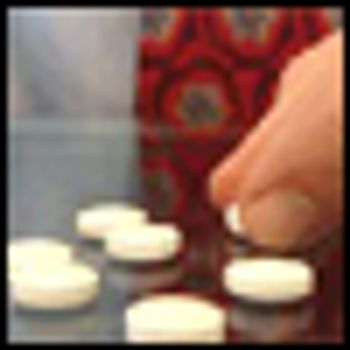
Alcohol has had a long and checkered history in human affairs. Dating back millennia to ancient Egypt, its consumption has been associated with sacredness as well as frivolity.

Alcohol has had a long and checkered history in human affairs. Dating back millennia to ancient Egypt, its consumption has been associated with sacredness as well as frivolity.

Colonel David M. Benedek, MD-a psychiatrist-takes a brief look at the emotional fallout of war in veterans returning from Iraq and Afghanistan and points you to the "The Clinical Manual for Management of PTSD."

Those of you who have been following the SVP controversy know that "Paraphilia NOS, nonconsent" (PNOS) is a fake diagnosis that is losing traction as justification for committing rapists to psychiatric hospitals.

Although we would all like to believe otherwise, war is not over when a service member returns home. For many, returning home may be where the harder battles begin. Intensive training prepares troops for warfare, but what training do they have to readjust when they return home?

The VA provides the largest network of care facilities in the world, specifically aimed at our nation’s veterans. The DoD is another large provider of resources for this cohort. Military One Source offers 24/7 assistance for troops, families, and veterans.

Members of the military returning from combat operations have high rates of substance abuse. They also often exhibit a co-occurring triad of posttraumatic stress disorder (PTSD), traumatic brain injury (TBI), and pain, which complicates the problems with substance abuse.

The suicide rate in the US military has steadily climbed over the past 5 to 7 years despite aggressive efforts by the military and the mental health community to counter this trend.

This article addresses the epidemiology, diagnosis, and treatment of mild TBI among combat veterans, with a particular focus on blast injury and the presence of comorbid posttraumatic stress disorder (PTSD).

Most military families successfully adapt to a service member's deployments for military duties. Nevertheless, almost a decade of wartime stress associated with the current wars in Iraq and Afghanistan has presented unprecedented challenges for military families.

This Special Report aims to address those symptoms and syndromes most commonly seen by clinicians who treat service members. The 5 articles of the Special Report cover the most challenging aspects of their care, and the authors hope to expand the reader’s understanding of the recent conflicts’ tragic consequences.

Tell us how we can serve you better

DSM-II was published in 1968. DSM-5 will be published in 2013. How much progress have we made? I propose that we approach this question with a quiz.

Which tool is helpful in screening for sexual addiction? Is the symptom severity in women treated for substance abuse generally equivalent to that of males? Structural abnormalities in which brain areas have been associated with substance abuse? These questions and more in this quiz.

The legend of the “chemical imbalance” should be consigned to the dust-bin of ill-informed and malicious caricatures.

During the past year, I have been involved as an expert witness for the defense in 14 SVP cases (tried in California, Washington, and Iowa). My role has been to clarify what is meant by the wording of the Paraphilia section in DSM-IV. And it certainly does badly need explaining.


Early June, cumulus clouds building...in a mountain sky, the lake filled...with kids, their shining, half-naked

From my standpoint as the author of Unhinged, Dr Haldipur’s review is both good news and bad news.

Unhinged is one of many books published in the past few years critical of psychiatry. A book of scandals and debates, and a polemic of sorts-a “trahison des clercs”-rather than an intellectual discussion about psychiatry. Therein lies the trouble with psychiatry.

REMS programs are meant to focus on drugs that are associated with special risks that the FDA does not feel are sufficiently addressed by the standard prescribing information.

Treatment resistance in bipolar disorder is clinically familiar but lacks a standard definition. Numerous evidence-based treatments exist for all phases of bipolar disorder, and these should be optimized and fully explored.

A balanced review of the safety and efficacy of ECT is needed, which does not mean weighing anecdotal reports of memory loss equally with systematically collected clinical data.

The United States has often been characterized as a nation of hypochondriacs. This is patently not true but TV bombardment by pharmaceutical advertisements stirs anxiety and illness fears in the many worried well in our midst.

There are bad deaths and there are good deaths. Sometimes we can do nothing to affect which of these outcomes will occur, and other times there are variables that we can control.

Dr McGorry’s promotion of primary prevention has been well-intended but is clearly premature and carries with it considerable risks of harmful unintended consequences.

Talking to Families About Mental Illness aims to help primary care providers who want to offer family psychoeducation. This book targets non-psychiatrists who diagnose and treat mental illnesses.

Although the foundational and antifoundational traditions differ in their language and claims, both call into question the legitimacy of psychiatric diagnosis and treatment.

This article, based on a comprehensive review by Weathers and associates, provides a selective and brief summary of trauma and PTSD assessments in adults.

For women with metastatic or recurrent breast cancer, reductions in depression symptoms over the first year of a randomized controlled trial predicted longer survival times.

Many adolescents have taken to the Internet to discuss their struggles with psychiatric disorders not ordinarily diagnosed in persons under 18 years old (eg, bipolar disorder).